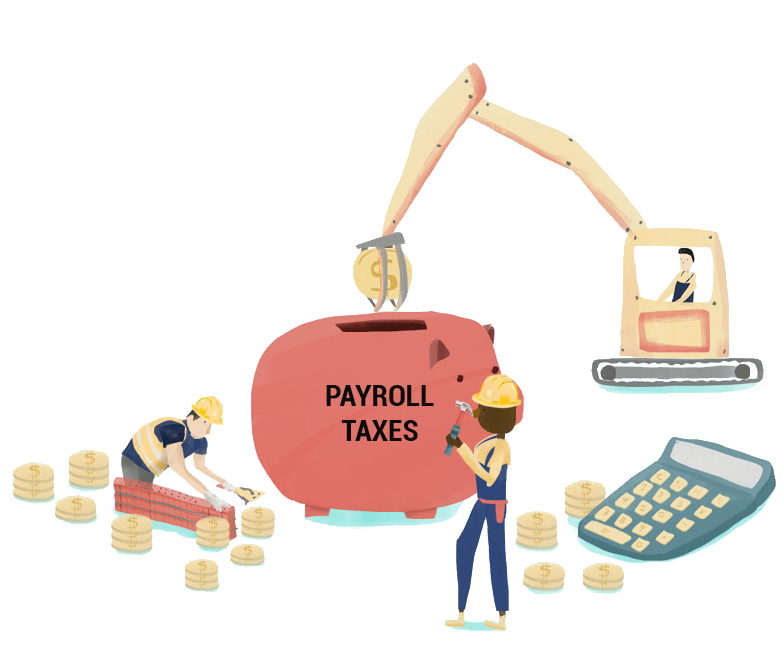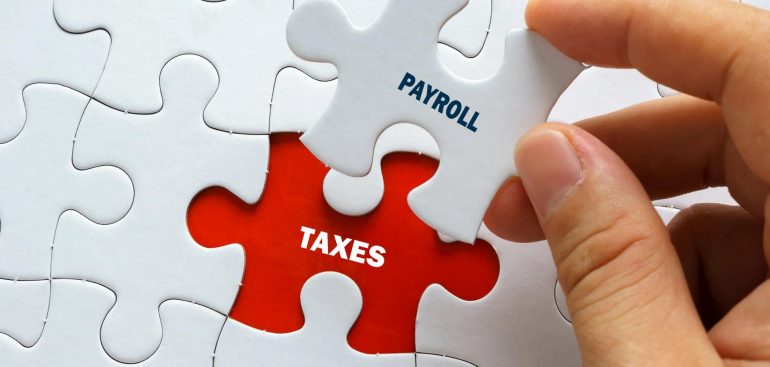When it comes to unpaid taxes, the IRS is a little harsher on corporations than on individuals. Businesses owe more taxes and are more involved in tax administration than individuals. People who owe taxes are treated harshly by the IRS, who consider it a significant infraction and a serious felony. They are unconcerned with an individual’s or a business’s financial situation, whether they have declared bankruptcy or are deeply in debt; all they worry about is that you pay the taxes you owe. Payroll taxes are the most strictly enforced by the IRS of any sort of tax. They are highly concerned about unpaid payroll taxes and have hefty penalties for late payment.
A company that receives payroll taxes from its employees is obligated to pay those taxes on their behalf. If a company fails to pay its taxes, it is considered fraudulent and is dealt with accordingly.
What are Payroll Taxes?

All businesses must submit all accurate information to the IRS, make monthly payments to the federal payroll tax department, and file informational returns. The company is obligated to provide a W-2 Form to all workers and a Form 1099 to any individual contractors so that they may identify how much they were paid and what deductions and bonuses they received. All businesses must also use the IRS-created Electronic Funds Transfer (EFT) system to deposit Medicare and Social Security taxes for their employers and employees. This deposit can be made monthly or semi-weekly and is based on forms from past years, such as Form 941. If your employer has more than $50,000 in tax withholding each year, they must deposit semi-weekly, and those with less than $50,000 in tax withholding must deposit monthly. The IRS will determine the frequency of your deposits, and you will be notified.
Businesses must also pay Federal Unemployment Tax Act (FUTA) tax each quarter if their total salaries paid for the quarter exceeded $1,500. In terms of all the forms and their functions, Form 940 is used to report your FUTA tax. Other forms include Form 941 or Form 944. On a quarterly basis, Form 941 is used to report employee wages, employer withholdings, and Medicare and Social Security taxes. Form 944 is the same as Form 940, however, it is reserved for employers with annual tax withholding of less than $1,000 per year.
What happens when a business fails to pay or file its Payroll Taxes?
When a company fails to pay its taxes, particularly its payroll taxes, it is not a minor issue. Many firms get into financial difficulties and are forced to postpone paying their taxes. This results in a failure to submit a penalty of 5% every month, with a maximum penalty of 25%. Other steps that the IRS could take include levying or enforcing a levy or lien on the bank accounts of businesses or individuals.
How to Solve this Problem?

This is a significant situation that might be difficult to handle. The first step you could take is, of course, to pay your taxes if you can find the money, but if you can’t, here’s what you need to do. If it is completely difficult for you to pay your taxes, you can request extensions. The IRS is often able to be patient and provide you with a time period and a plan for paying these taxes. If you are unable to do so, do not wait for the IRS to come knocking on your door; instead, get assistance. Seek expert assistance from a Miami Tax Accountant who has dealt with similar issues and assisted individuals and organizations in dealing with them efficiently.
Any form of tax problem necessitates the assistance of a professional. Allow the pros to handle the process of owing payroll services, which can be difficult and intimidating. We can assist you in sorting through your options and determining the best solution and payment plan for you. Our team consists of Tax Preparers in Miami who have been dealing with issues like these for years and have solved them effectively. Be a part of our happy clients and let us take care of all your tax concerns.
All you have to do is reach out to us; you can email us at admin@sdgaccountant.com or call us: +1 (786) 706-5905.

